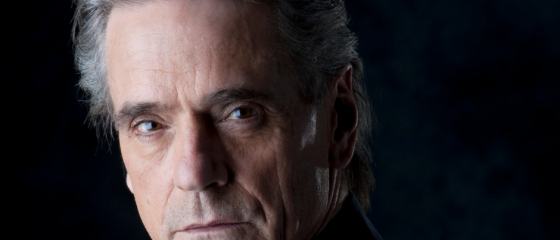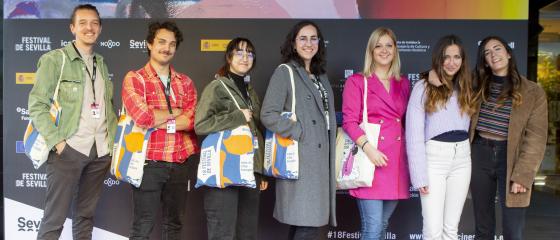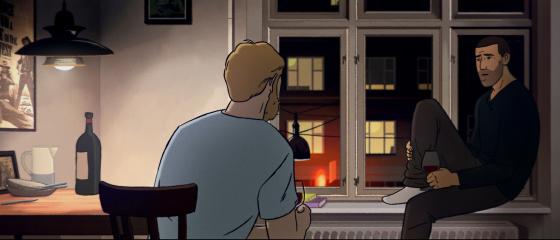- The Panorama Andaluz section, with new features in 2024, will show most of the world premieres announced this morning: six feature films and two short films
- Paz Vega, cartoonist Nazario and Natalia de Molina are some of the established professionals who will bring their new projects to Seville European Film Festival. The Andalusian audiovisual industry will be represented by directors and other well-known names such as Pedro G. Romero, Alexis Morante, Alfonso Sánchez, Laura Hojman and José Antonio Hergueta
One of the main features of the programme of the new edition of Seville European Film Festival, which will be held from 8 to 16 November in various venues around the city, is the number of premieres. The general public, professionals and critics will have the opportunity to watch more than 70 films that have never been released in Spain, as was announced at a press conference today. Specifically, the festival has programmed 22 Spanish premieres, eight absolute world premieres and 10 international premieres distributed among its different sections. Panorama Andaluz is the section with the largest number of world premieres: six feature films and two unreleased shorts will be screened, along with a notable presence of documentaries.
Paz Vega, cartoonist Nazario and Natalia de Molina are some of the established professionals who will bring their new projects to Seville European Film Festival. The Andalusian audiovisual industry will be represented by directors and other well-known names such as Pedro G. Romero, Alexis Morante, Alfonso Sánchez, Laura Hojman and José Antonio Hergueta.
The Sevillian and Andalusian film industry will have a strong presence in the festival's screenings and meetings. The voices and views of creators from the south will form the backbone of part of the programme, alongside the latest and most interesting European film productions. This was explained at the presentation of the festival's new image and preview of the programme, which took place today in the presence of the Mayor of Seville, José Luis Sanz, the Councillor for Tourism and Culture, Angie Moreno, the festival's director, Manuel Cristóbal, and the designer of the visual identity, the artist Pedro Cabañas, accompanied by a large representation of the sector and part of the creative and technical teams of the Andalusian productions on the programme.
Manuel Cristóbal
Panoramic premieres
Among the premieres programmed in the Panorama Andaluz section are three documentaries about important local personalities in the fields of photography, literature and history. In 'Atín Aya. Retratos del silencio', Hugo Cabezas and Alejandro Toro take us on a vivid journey through the life and work of a documentary photographer who managed to capture the soul of the people through his camera. In 'Francisco de Saavedra, puño y letra de la historia', Alfonso Sánchez portrays the fascinating life of this enlightened citizen of Seville: soldier, spy, lawyer, minister, royal commissioner to the Americas and confidant of Charles III, Charles IV and Ferdinand VII. Finally, 'Manuel Machado o la edad de la poesía' is Miguel Ángel Hernández's homage to the writer's literary legacy on the 150th anniversary of his birth.
The selection also includes 'Tierra de Atlantes', in which José Antonio Hergueta shows how recent archaeological discoveries have confirmed the existence of Tartessos, a civilisation traditionally imagined as an Eldorado in the Mediterranean and often confused with Atlantis, and 'Negro limbo', the second feature-length documentary by Lorenzo Benítez, who this time explores the state secrets and impunity of the Franco dictatorship in the former Spanish Guinea.
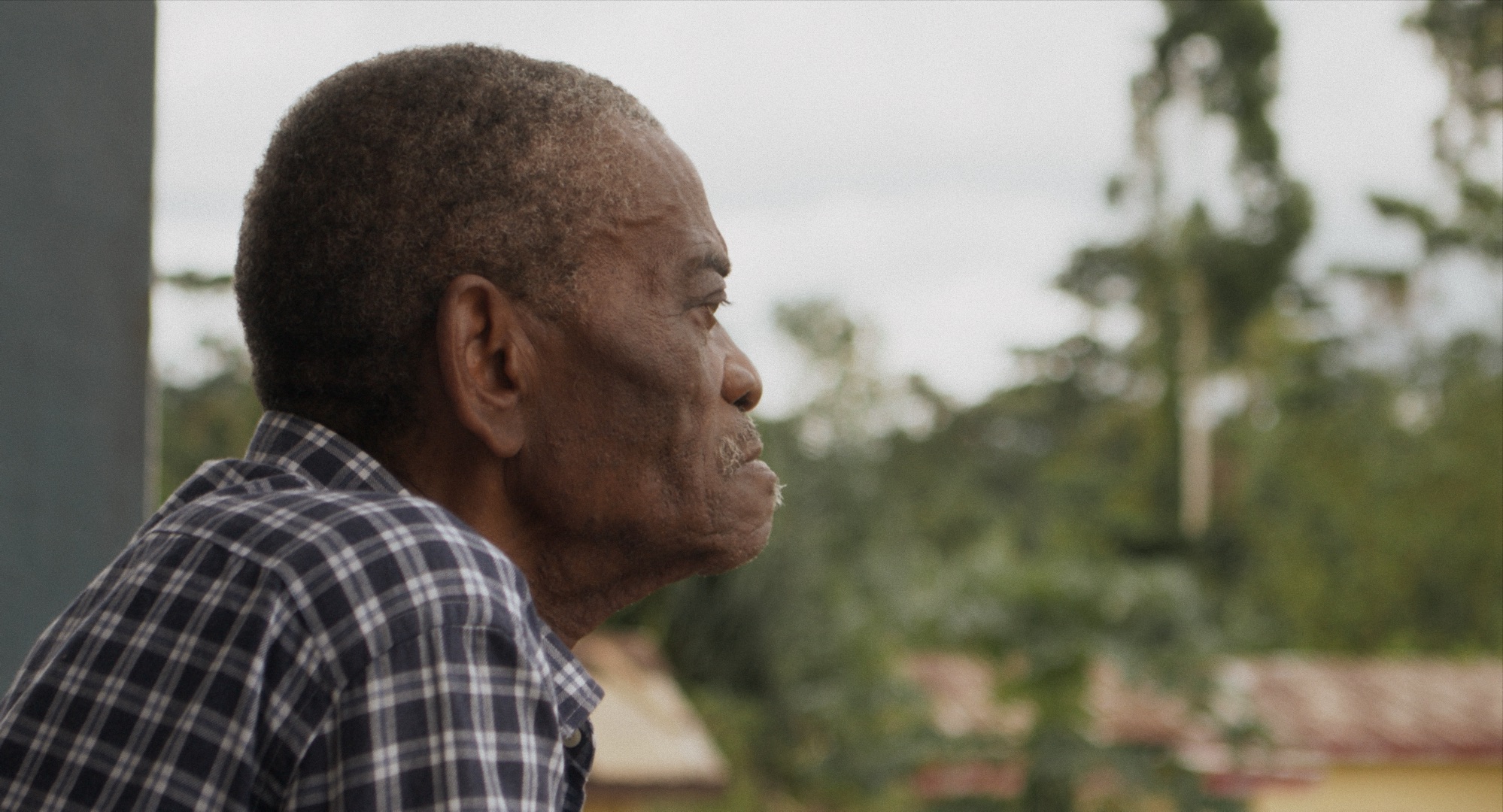
Negro limbo
In addition to these three documentaries, the fiction film that will have its world premiere in Seville is 'Padres' by José Ángel Bohollo, about the disappearance of a 15-year-old girl after she and her best friend went to a music festival.
On debut films and non-fiction cinema
The Panorama Andaluz focuses on a further nine titles, with a strong presence from the documentary genre. This section once again includes an interesting mix of debut films and films by established directors.
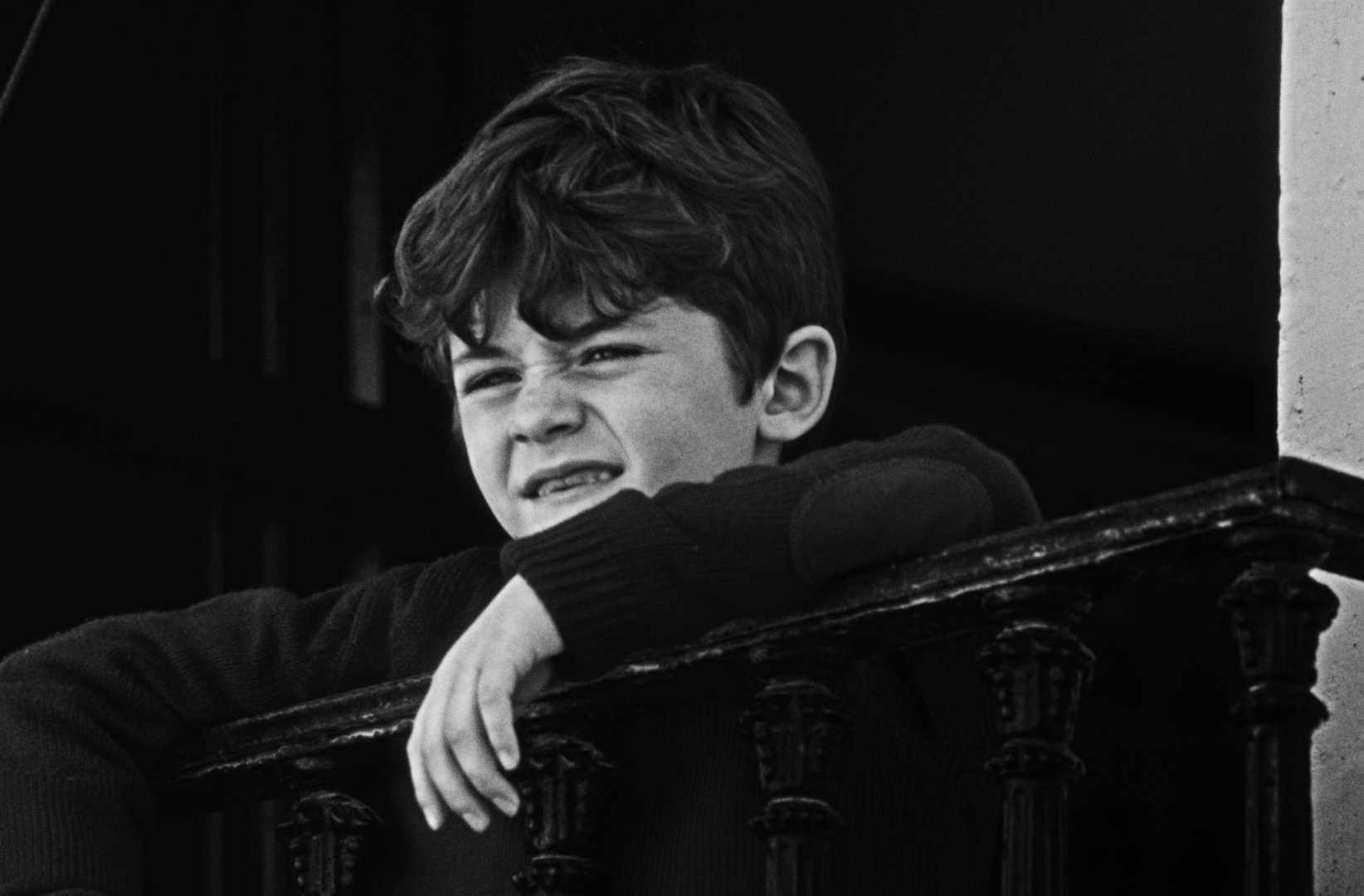
Los restos del pasar
The non-fiction section includes 'Los restos del pasar', in which Luis (Soto) Muñoz and Alfredo Picazo document in black and white the last days of the life of a man who remembers the Easter week of his childhood in Baena; Caja de resistencia' by Alejandro Alvarado and Concha Barquero, in which they revisit the figure and sketches of a director as enigmatic as he is rebellious, Fernando Ruiz Vergara, whose documentary 'Rocío' (1980) was censored in the early days of democracy for disrupting the relationship between religious, political and economic power in Andalusia; and the unclassifiable music documentary 'De caballos y guitarras' by Pedro G. Romero, recently awarded the National Prize for Music. Romero, recently awarded the National Prize for Visual Arts, which combines a concert for horses at the Tempietto de Bramante in Rome in 2019 with a conceptual reflection on the anthropocentric gaze in art history.

Rita
On the fiction side, three debuts by female directors stand out. 'Rita', the debut film as scriptwriter and director by the actress Paz Vega, portrays the life of a young girl in Seville in the 1980s; Elena Manrique's first film, 'Fin de fiesta', about an illegal immigrant, a domestic worker and the owner of a house where the three of them meet; and 'Por donde pasa el silencio', Sandra Romero's leap into feature films with the adaptation of her short film of the same name, which won the Best Director award in Malaga.
Two of the titles in this section, which are always very well received by the general public, are revivals, as both 'Los últimos románticos' and 'Historias' are the second films by their directors. The former is an adaptation by David Pérez Sañudo of the novel of the same name by Txani Rodríguez, winner of the Euskadi Literature Prize, while in the latter, Paco Sepúlveda interweaves 11 lives. Finally, with a combination of a fantasy biopic and a documentary, '¿Es el enemigo? La película de Gila', Alexis Morante pays tribute to the famous comedian with an anti-war fable set during the Civil War.
Juan Antonio Bermúdez Award for Panorama Andaluz. The last edition of the film festival tribute was paid to Juan Antonio Bermúdez by awarding him the posthumous Giraldillo de Oro. He was the 'alma mater' of the Panorama Andaluz section and was vice-president of the Andalusian Film Writers' Association (ASECAN) for eight years. This year the tribute is extended by changing of name of the prize awarded in the section. From this 21st edition, and in recognition of his work, it will be renamed the Juan Antonio Bermúdez Award for the Andalusian Panorama.
The jury responsible for awarding this symbolic prize will be made up of programmer and cultural manager Sonia López, from CICUS (Centre for Cultural Initiatives of the University of Seville); distributor and exhibitor Rogelio Delgado, director of the Cineapolis Group; and screenwriter, essayist and journalist specialising in cinema Marta Jiménez.
The Panorama Andaluz section will also include short films in its programme. In total, this year's edition will offer audiences a glimpse into 23 small universes, that are short only in terms of time but not in content. Among the highlights are the premieres of 'El rey Enoc', by José Luis Pineda Olmedo, and 'Helena, una sombra en la plaza Real', by cartoonist Nazario Luque, based on the 11 colour vignettes that inspired the poem 'Helena' by Giorgos Seferis.
Also worth mentioning is 'Cuarentena', a short story in which Celia de Molina directs her sister, the twice Goya prize-winner Natalia de Molina.
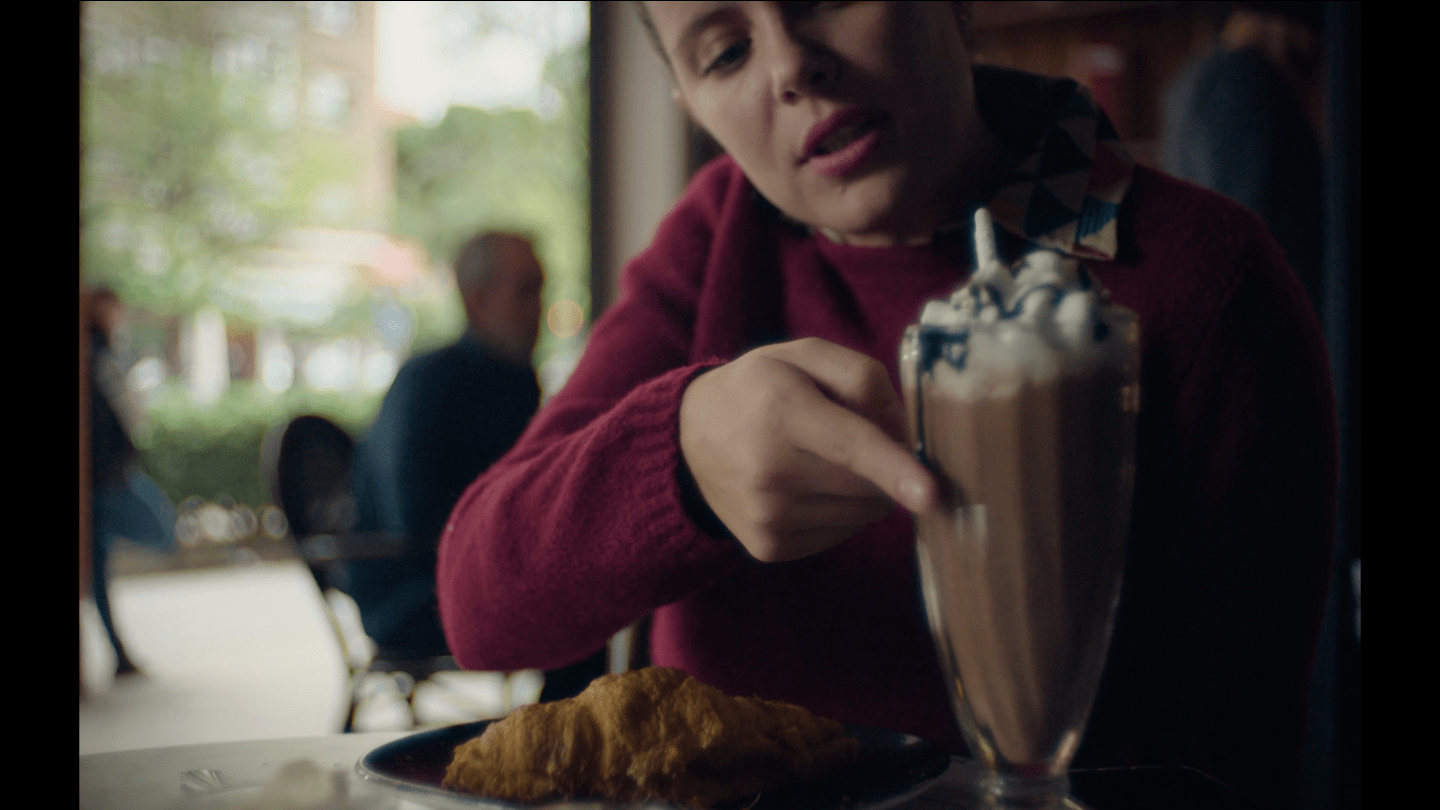
Cuarentena
Andalusia is also present in the other sections
The other sections of this 21st edition include eight Andalusian films. Two of them are documentaries that will have their Spanish premiere at the festival. Out of competition, the Official Section will show 'Un hombre libre' by Laura Hojman, which traces the life of writer Agustín Gómez Arcos through interviews with friends and collaborators, archival footage and recordings. The New Waves section will include Jorge Peña Martín's creative documentary 'Os naufragados', about the community that inhabits the beach of the same name in the south of the Brazilian island of Florianópolis.
There are also six proposals from Seville. The EFA section includes films that will compete for the Puerta América Award, such as the film that will represent Spain in the Oscar category of Best International Film, 'Segundo premio' (Isaki Lacuesta and Pol Rodríguez), produced by Áralan Films.
In the Essential section, the restoration of 'Solas' (Benito Zambrano, 1999), produced by Maestranza Films, will be screened, coinciding with the 25th anniversary of its premiere.
Finally, the Special Screenings will present two locally produced proposals: RTVE's documentary series on Jesús Quintero, 'El loco', and Marina Seresesky's 'Sin instrucciones', produced by La Pepa Films and starring Paco León.
Also with an Andalusian accent, the festival will host the presentation of the RTVA Life Achievement Award and the Andalusian Imagenera Documentary Creation Award, organised annually by the Foundation of the Centre for Andalusian Studies, which aims to promote the study and dissemination of Andalusia through documentary language.
A wide range of premieres in the Official Section
New titles for the highly anticipated Official Section were also announced today. In addition to the previously announced films - 'Flow', 'Julie Keeps Quiet', 'Banzo', 'Paul & Paulette Take a Bath', 'Transamazonia' and 'A Missing Part' - the Danish, Georgian and British Oscar contenders have been added. They are Magnus von Horn's historical drama 'The Girl with the Needle', based on true events; Rusudan Glurjidze's drama about the deportation of Georgians to Russia, 'The Antique'; and director Sandhya Suri's Hindi crime drama 'Santosh'.
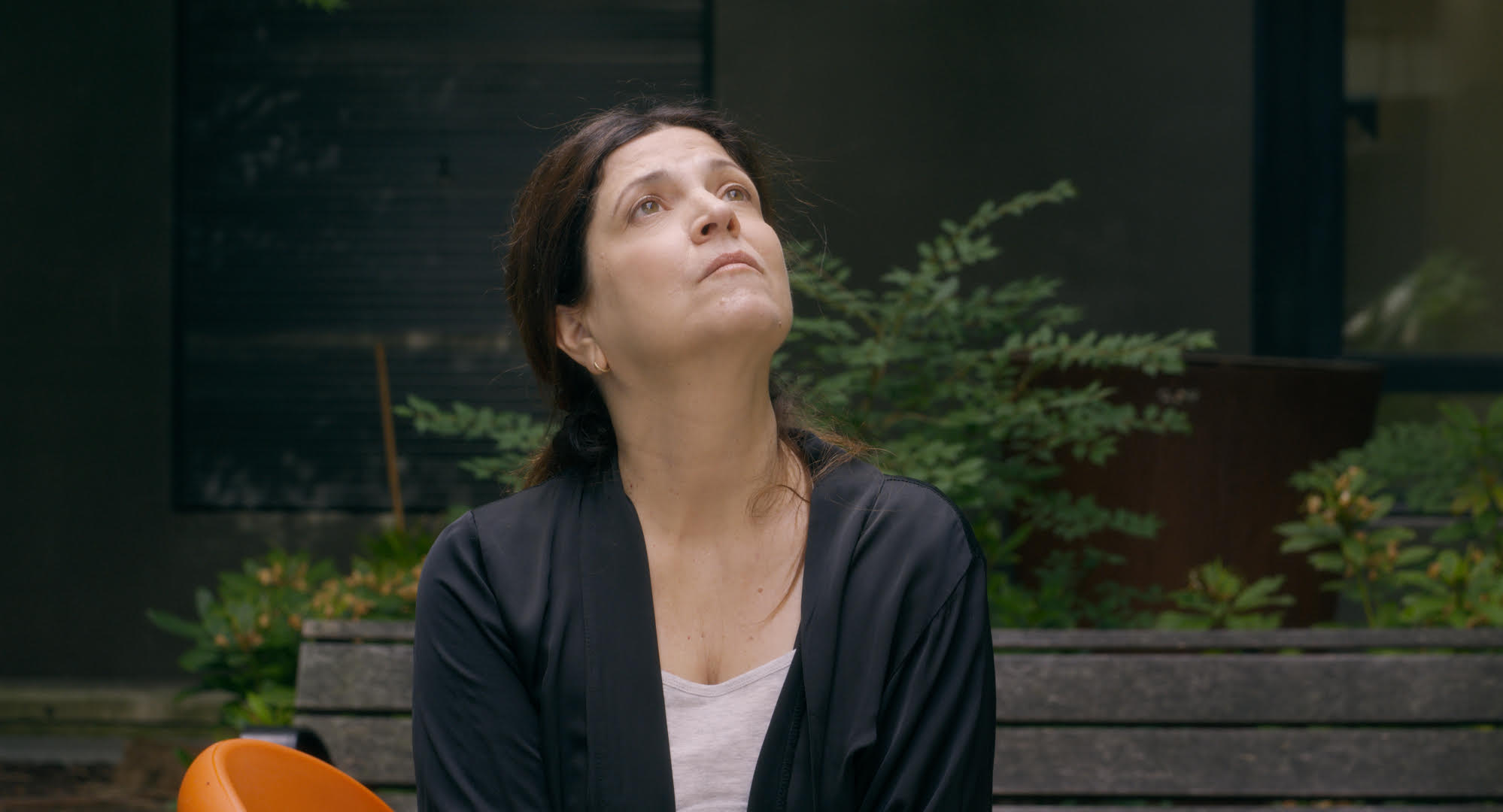
Ma Vie Ma Gueule
Many of the feature films in this year's festival have previously been selected at major international film festivals. Philippe Lesage's French-Canadian drama 'Who By Fire' was programmed in the Generation section at the last Berlinale, while Sophie Fillières' autobiographical film 'Ma Vie Ma Gueule' screened in the Quincenne des Ralisateurs at Cannes; French twins Ludovic and Zoran Boukherma's adaptation of Nicolas Mathieu's Goncourt Prize-winning novel 'And Their Children After Them' was at the Venice Film Festival, as was Swedish refugee drama 'Life on Pause' and Jan-Willem van Ewijk's Dutch film 'Alpha', about the tensions between father and son in a ski resort; while the Swiss film "The Sparrow in the Chimney" (Ramon Zürcher), about the reunion of two sisters and their families, and the French film "Fario", in which Lucie Prost looks at the suicides of French farmers through the eyes of a child, premiered at Locarno.
New Waves
The section of the festival dedicated to films with a more experimental slant includes three premieres in our country after being screened at Class A festivals. Pavel G. Vesnakov's Bulgarian 'Windless', starring rapper Fyre, was in Karlovy Vary; Yolande Zauberman's French documentary 'La belle de Gaza', about the Palestinian transsexual community in Israel, had a special screening in Cannes; while the Italian 'Vittoria', by Alessandro Cassigoli and Casey Kauffman, won two awards in the Orizzonti section in Venice.
On the other hand, the new Rampa section, which honours emerging talent, features two international premieres: German Justine Bauer's debut film 'Milch ins Feuer', which offers a plausible image of rural life, with its tensions between idyll and isolation, and 'Une Vie Revée' by French director Morgan Simon, starring Valeria Bruni Tedeschi.
The other films announced today were part of the Berlinale programme, such as Carlo Sironi's new film 'My Summer with Irene', a coming-of-age film about two teenagers who travel together in an attempt to forget; and the Toronto festival with Damian Kocur's 'Under The Volcano', about a Ukrainian family on holiday in the Canary Islands who become refugees overnight when the Russian occupation of Ukraine turns into a full-scale invasion; and Christopher Andrews' thriller 'Bring Them Down', starring Barry Keoghan and Colm Meaney, among others.
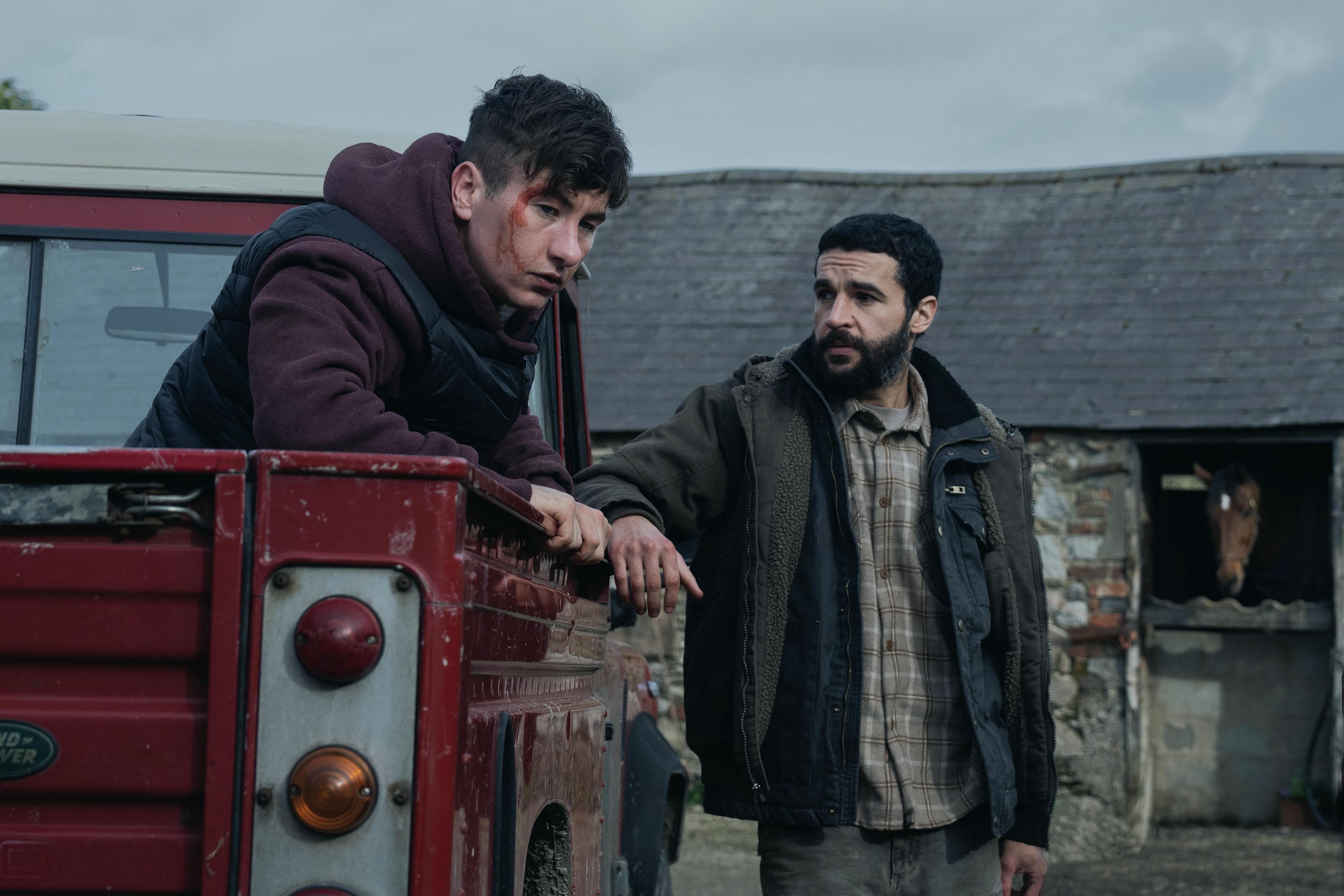
Bring Them Down
The Rampa section award will be decided by a jury made up of screenwriter Fernando Navarro, film producer, CEO of Áralan Films and President of the Andalusian Film Academy, Marta Velasco, and producer Sergio Jiménez. As far as Alumbramiento is concerned, this section will host two other Spanish premieres: 'Three Days of Fish' (whose protagonists Ton Kas and Guido Pollemans won the Best Actor award in Karlovy Vary) and Gabrielle Brady's hybrid documentary 'The Wolves Always Come At Night', selected at the Toronto Festival, a portrait of a family in rural Mongolia.
The Alumbramiento jury is made up of programmer and teacher José Antonio Hurtado, director and screenwriter Esteban Crespo and doctor of advertising and academic teacher María Rosa Collell Riera.
A permanent graphic element
After flooding Seville with pixels of colour for the 20th edition, graphic designer Pedro Cabañas is once again in charge of the Festival's image. The event's organisers wanted to create a new brand image based on the colour proposal for 2023, which flooded the streets of the city with optimism and joy in a variety of tones that conveyed the diversity of both the festival and the city of Seville.
The challenge of designing a poster for this year was not an easy one. On the one hand, it was a matter of preserving the essence of the previous design, so that the multicoloured pixels would have a greater reach and become a permanent and recognisable graphic element over time, but at the same time it was a matter of offering the spectator something different.
Pedro Cabañas
In order to achieve this, the Sevillian artist has taken the graphics of the previous edition and created an analogy with the language of cinema, as the image resembles a "zoom in" to discover a new dimension in the original chromatic range. Now the viewer is positioned to see a close-up of a detail of the original mosaic. We see it magnified, as if through a macro lens, and discover that these now gigantic pixels are arranged in different depth planes. In this way, they create what could be different cinema screens, where every colour fits: the cinema screens of the different venues of the festival.
The visual sensation is that the previously flat 2D graphics in the previous image are now transformed into an environment with three-dimensional volume and depth, created by the shadows cast by the screens on top of each other. As part of this rebranding, the design of the logo and the typographies used in communication have also been updated. The result retains the personality and essence of the moving effect of the previous logo, but with a different typography that is simpler, more compact and neutral, where the name of Seville in particular is highlighted with greater typographic weight and thickness, giving the city greater visibility.
Season tickets on sale
From this Tuesday, 15 October, season tickets for the 21st edition of the Seville European Film Festival will go on sale online. Except for some of the galas and special events, where the price will be 6 euros, individual and general tickets will cost 3.50 euros. The Single Pass costs 22 euros and includes eight individual tickets (one ticket per event).
The Duo Pass costs 28 euros and includes five double tickets or 10 single tickets. They can be used by one person, giving them 10 tickets to 10 films, or shared, giving up to five double tickets. The Double Pass allows you to combine single and double tickets. The Senior Pass is for people aged 60 and over. It costs 20 euros and is equivalent to five double tickets or 10 single tickets, which can be used by one person or shared. Combinations of single and double tickets are also allowed. Finally, people under the age of 26 can also benefit from a special price. The Youth Pass costs 18 euros and includes 10 individual tickets that can be used one per session.



